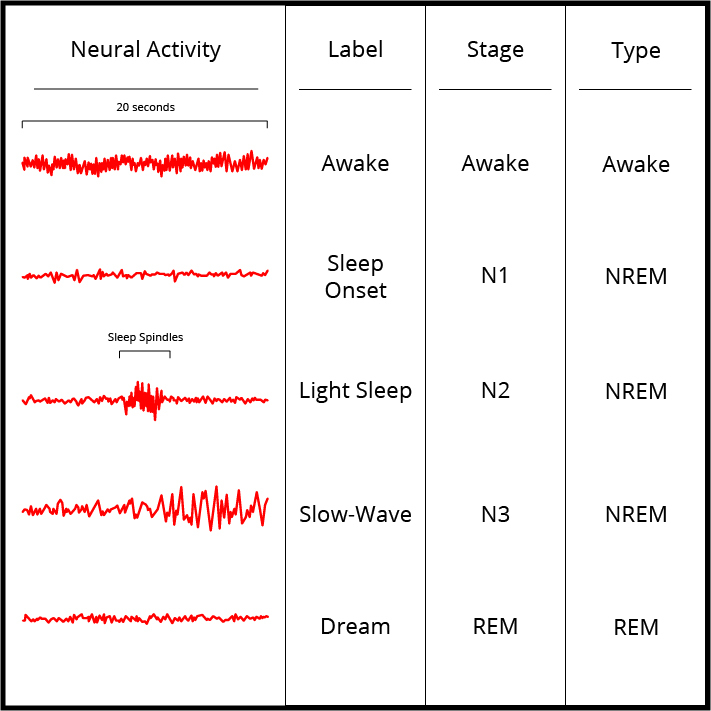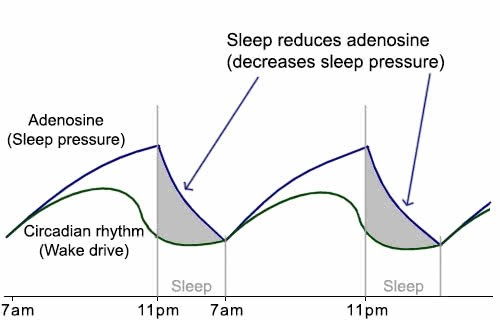Sleep
Never compromise on your sleep. It is one of the worst thing you can do to your body. Read the book Why We Sleep.
Videos:
Stop
I need to stop sleeping so late. Build a sleep routine, reduce screen exposure at night because you need the melatonin.
Goal: 12am - 8am, or 11pm-7am sounds reasonable.
Napping is NOT a replacement for sleep. Napping simply helps you become better rested during the day. If you want to nap, nap on the chair, NOT in your bed.
- But Huberman does recommend taking naps during the day, as it helps you learn?
- But instead, I think you should take a walk in nature, helps with restoring attention
But what is the concept
I use a Xiaomi Mi Band and the Zepp Life app to track my sleep.
Three types of sleep, taken from this cheatsheet Why We Sleep.pdf
- Light Sleep: improves your ability to learn new information the next day
- Deep Sleep: improves your ability to recall information from the previous day
- REM Sleep: improves your ability to make sense of information, and any related emotion
How to get a good night’s sleep
- Put on blue light blocking glasses in the evening.
- Half hour before bed, I read a print book under red LED light
- When it’s time to sleep, I put on sleep mask (I don’t do this personally)
- Your body temperature needs to drop two to three degrees Fahrenheit to initiate sleep.
- Get a cold room at night
- Right before bed, take a hot shower. this drops body temperates:t: core temperature drops, and it’s easy to fall asleep.
I don’t think I have a problem falling asleep. I just have a problem looking at my phone for 30mins-2hours before deciding I want to go to bed. I delay sleep.
“Said differently, when I was well rested, my brain was more engaged in willpower control.” - https://www.kernel.com/news/sleep-and-impulse-control
When you sleep better, you can better control your impulses.
“Sleep is the human reset button.”.
I haven’t had the best relationship with sleep. Recently, I’ve had this weird fear of falling asleep and never being able to wake back up from it. I don’t understand sleep well enough beyond that I need to wake up earlier and sleep earlier because that is what is more “healthy” and “productive”.
Sleep is super important for me to learn.
When you learn a piece of music, its really hard, you sleep on it, and the next day, it just comes together much more easily?
It’s in your sleep, your brain is forming all these things together.
Sleep is the new coffee. - Bryan Johnson
Stages of Sleep as seen in Psychology
Reviewed in PSYCH101
- Stage 1 (called NREM 1, or N1) is the “falling asleep” stage and is marked by theta waves.
- Stage 2 (called NREM 2, or N2) is considered a light sleep. Here, there are occasional “sleep spindles,” or very high intensity brain waves. These are thought to be associated with the processing of memories. NREM 2 makes up about 55% of all sleep.
- Stage 3 (called NREM 3, or N3) makes up between 20-25% of all sleep and is marked by greater muscle relaxation and the appearance of delta waves.
- Finally, REM sleep is marked by rapid eye movement (REM). Interestingly, this stage—in terms of brain activity—is similar to wakefulness. That is, the brain waves occur less intensely than in other stages of sleep. REM sleep accounts for about 20% of all sleep and is associated with dreaming.

Notes
Two factors determine wake and sleep
- Our 24-hour circadian rhythm
- Sleep pressure
Because deep sleep is part of the memory formation process, you may struggle to consolidate memories after nights without enough deep sleep. Even after one night of insufficient sleep you may experience difficulty learning or remembering information.
Cool things I learned about sleep
What to do before Sleep
Research says you should game first, and then study before going to bed. That helps with retention better, as during sleep, this is when we retain things, so if you game right before bed, you brain is going to be focused on the gaming part instead of studying. The only exception to that is if you keep ruminating on a certain episode when you try to sleep. In those cases, gaming right before helps so you are more distracted and focused on those vivid images (tetris being the ultimate game).
Falling Asleep and Waking Up
Circadian (Wake drive)
The urge to be awake
Circadian Rhythm
Each of us have a 24-hour biological clock called the circadian rhythm. It is located in the middle of our brain in a part called the suprachiasmatic nucleus. It governs our preferences for sleep, but also for
- eating and drinking
- moods and emotions
- body temperate
- metabolic rate
- release of numerous hormones,
- etc.
These things are not constant throughout the day but rather flow up and down like a wave.
Wakefulness and sleep are under the control of the circadian rhythm, not the other way around.
However, different people have different circadian rhythms. Morning types are 40% of the population. Evening types (night owls) are 30% of the population. People somewhere in the middle (ME) are 30% of the population.
Night owls do not do it by choice, but it is because they are bound to a delayed schedule by their DNA. However, they are heavily punished by society because we tend to want to do things early in the morning, so they are cutting down on their sleep.
Question: Can you change/should you change your circadian rhythm?
For every day, your suprachiasmatic nucleus can only readjust by about one hour.
Sleep Drive (Process-S)
the urge to fall asleep
Melatonin (not important)
Melatonin is released at night. It simply provides the official instruction to commence the event of sleep, but does not participate in the sleep race itself. Melatonin is a not a powerful sleeping aid in and of itself for normal healthy people.

Adenosine
Adenosine creates a pressure to sleep, known as Process-S. When we’re super tired, it is because we have a high sleep drive. Coupled with a low wake drive, this is when we are the most tired.
Quality of Sleep
- Light Sleep
- Non-Rapid Eye Movement (NREM)/Deep Sleep
- Rapid Eye Movement (REM) Sleep